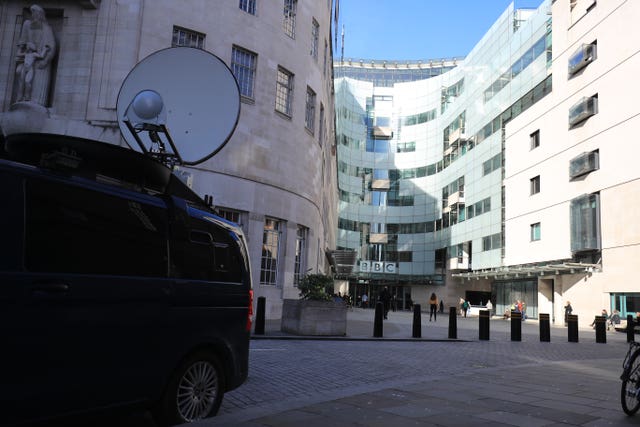
Decriminalising licence fee evasion and switching to a civil system would cost the BBC more than £1 billion over the five-year remainder of the Charter period and would lead to significant cuts to programmes and services, the corporation has said.
A change would initially cost the BBC around £300 million, with additional annual costs of more than £200 million, the broadcaster said in response to the Government’s consultation on the issue.
The corporation has suggested the Government should conduct a second, “more detailed” consultation before any decision can be made.
The response says: “Independent behavioural research commissioned by the BBC suggests that under any civil system evasion would increase to around 10%.

“And the transition and running costs of any new system would be significantly higher.
“Taking evasion, transition and enforcement costs together, we estimate a new civil system would initially cost the BBC around £300 million.
“The costs to the BBC would therefore amount to more than £1 billion over the remainder of the Charter period from 2022 to 2027. This would inevitably require significant cuts to BBC programmes and services. It would also reduce substantially the BBC’s investment in the UK’s creative economy across the whole UK, including the nations and English regions.”
The estimated annual cost of more than £200 million takes into account “an increase to evasion, implementation and transition costs of a new system, and ongoing extra operational costs from running it.”
The BBC argues that the current licence fee system remains “fair, effective and good value for money” but the response says: “We understand why people have reservations about the criminal system and can see attractions with the civil system.
“No one wants to see people sent to prison for failure to hold a TV licence, nor a system that is unfair.
“However as part of the BBC’s response we set out clearly that there are a number of myths about the current system and that some of the potential attractions of a civil system are not borne out by the evidence.”
The corporation says it recognises that the current system of collection by TV Licensing could be improved and is happy to work with government on other proposals.
The response added that a civil system would hit the poorest hardest as there is no discretion to vary the size of the fixed penalty and this will have a significant impact on those on lowest incomes and the most vulnerable in society where the threat of bailiffs at the door or impact on credit ratings have serious consequences.
A statement from a BBC spokesman said: “There is no strong evidence to suggest there are either substantive issues with the current system or a need to change it.
“In fact the current system, as set out in great detail by an independent government review, remains the fairest and most effective.
“Any civil system would increase evasion, be worse for the most vulnerable in society and reduce investment in the creative economy by over £1 billion for the remainder of the Charter period.
“We understand why people have reservations about the criminal system but some of the potential attractions of a civil system are not borne out by the evidence.
“But beyond the merits of the debate, now doesn’t feel like the right time to have it. The BBC’s current focus is to do everything possible to inform, educate and entertain the nation. Taking money out of the BBC is not something we believe is backed by the public who enjoy our services every day.”


Comments: Our rules
We want our comments to be a lively and valuable part of our community - a place where readers can debate and engage with the most important local issues. The ability to comment on our stories is a privilege, not a right, however, and that privilege may be withdrawn if it is abused or misused.
Please report any comments that break our rules.
Read the rules hereLast Updated:
Report this comment Cancel